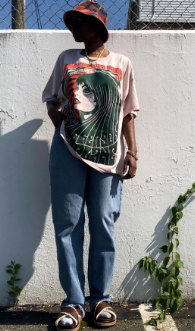
Luxury fashion house Dior is facing allegations of racism on Chinese social media over an advertisement that shows an Asian model pulling up the corner of her eye. The ad, which was posted on Dior’s Instagram account, was swiftly taken down after it garnered criticism from netizens who accused the brand of discriminating against Asians. The picture was promoting Dior’s new makeup collection and featured the model pulling up her eye with the caption “Channel your feline fierceness”. Chinese netizens have become increasingly sensitive to the depiction of Chinese people amid rising nationalist sentiment online.
The picture received criticism and sparked the viral hashtag “Dior makeup advertisement accused of discriminating against Asians” on Weibo. Angry comments flooded the label’s Instagram account, with one top-liked comment reading, “It’s racial discrimination.” State-owned newspaper Global Times published an editorial calling on the brand to apologize, saying that “‘Pulling your eyes back’… makes fun of the appearance of Asians, especially East Asians.”
Dior has not made any public comment in response to the accusations. However, this is not the first time the brand has been caught up in controversy in China, one of its biggest markets. In 2021, a Chinese fashion photographer’s picture for the brand sparked outrage after some netizens said it perpetuated Western stereotypes of Asian faces. The photographer later apologized, and Dior said it “respects the sentiments of the Chinese people.”
In 2022, Dior was accused of “culturally appropriating” a Chinese traditional design for one of its skirts. The brand has not made a statement on the recent accusations of racism on Chinese social media.
While some netizens believe the discussion is over the top, others are calling on Chinese celebrities who model for Dior to end their association with the brand. “Those who buy Dior never think it insults China, it’s always those who don’t buy that are concerned by it,” one Weibo user said.
In a world where brands are expected to be socially conscious and culturally aware, incidents like these can be detrimental to a brand’s image and reputation. With social media providing a platform for consumers to voice their opinions, it is crucial for brands to be aware of the cultural implications of their advertising campaigns. It is essential to promote diversity and inclusivity, especially in the fashion industry, which has been criticized for its lack of representation.
A Chinese fashion photographer’s picture for the brand sparked outrage in 2021 after some netizens said it perpetuated Western stereotypes of Asian faces. The photographer later apologised and Dior said it “respects the sentiments of the Chinese people”.
In 2022, Dior was accused of “culturally appropriating” a Chinese traditional design for one of its skirts. A Chinese snack brand was also previously accused of racism for using a model with narrow eyes in its advertisements.
Brands need to be aware of their actions and the potential harm they can cause, especially in a global market. Dior’s recent controversy shows that even well-established luxury brands can face backlash for cultural insensitivity. Brands need to do their due diligence and take steps to prevent similar incidents from happening in the future.
It is also important to acknowledge and address the concerns of consumers who have been affected by such incidents. An apology, along with a commitment to do better in the future, can go a long way in rebuilding trust with consumers. Brands must prioritize social responsibility and strive to be inclusive in their campaigns.
In conclusion, Dior’s recent controversy highlights the need for brands to be culturally aware and socially conscious in their advertising campaigns. As global markets continue to expand, it is crucial for brands to understand and respect cultural differences. The fashion industry, in particular, needs to promote diversity and inclusivity and take steps to prevent incidents of cultural insensitivity. Brands need to acknowledge the concerns of their consumers and commit to doing better in the future.









